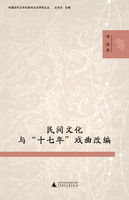To come to Paul's argument. Civil law, which is God's ordinance, prohibits tampering with any testament of man. Any person's last will and testament must be respected. Paul asks: "Why is it that man's last will is scrupulously respected and not God's testament? You would not think of breaking faith with a man's testament. Why do you not keep faith with God's testament?"
The Apostle says that he is speaking after the manner of men. He means to say: "I will give you an illustration from the customs of men. If a man's last will is respected. and it is, how much more ought the testament of God be honored: 'In thy seed shall all the nations of the earth be blessed.'
When Christ died, this testament was sealed by His blood. After His death the testament was opened, it was published to the nations. No man ought to alter God's testament as the false apostles do who substitute the Law and traditions of men for the testament of God."
As the false prophets tampered with God's testament in the days of Paul, so many do in our day. They will observe human laws punctiliously, but the laws of God they transgress without the flicker of an eyelid. But the time will come when they will find out that it is no joke to pervert the testament of God.
VERSE 16. Now to Abraham and his seed were the promises made. He saith not, And to seeds, as of many; but as of one, And to thy seed, which is Christ.
The word testament is another name for the promise that God made unto Abraham concerning Christ. A testament is not a law, but an inheritance.
Heirs do not look for laws and assessments when they open a last will; they look for grants and favors. The testament which God made out to Abraham did not contain laws. It contained promises of great spiritual blessings.
The promises were made in view of Christ, in one seed, not in many seeds. The Jews will not accept this interpretation. They insist that the singular "seed" is put for the plural "seeds." We prefer the interpretation of Paul, who makes a fine case for Christ and for us out of the singular "seed," and is after all inspired to do so by the Holy Ghost.
VERSE 17. And this I say, that the covenant, that was confirmed before of God in Christ, the law which was four hundred and thirty years after, cannot disannul, that it should make the promise of none effect.
The Jews assert that God was not satisfied with His promises, but after four hundred and thirty years He gave the Law. "God," they say, "must have mistrusted His own promises, and considered them inadequate for salvation. Therefore He added to His promises something better, the Law.
The Law," they say, "canceled the promises."
Paul answers: "The Law was given four hundred and thirty years after the promise was made to Abraham. The Law could not cancel the promise because the promise was the testament of God, confirmed by God in Christ many years before the Law. What God has once promised He does not take back. Every promise of God is a ratified promise."
Why was the Law added to the promise? Not to serve as a medium by which the promise might be obtained. The Law was added for these reasons: That there might be in the world a special people, rigidly controlled by the Law, a people out of which Christ should be born in due time; and that men burdened by many laws might sigh and long for Him, their Redeemer, the seed of Abraham. Even the ceremonies prescribed by the Law foreshadowed Christ. Therefore the Law was never meant to cancel the promise of God. The Law was meant to confirm the promise until the time should come when God would open His testament in the Gospel of Jesus Christ.
God did well in giving the promise so many years before the Law, that it may never be said that righteousness is granted through the Law and not through the promise. If God had meant for us to be justified by the Law, He would have given the Law four hundred and thirty years before the promise, at least He would have given the Law at the same time He gave the promise. But He never breathed a word about the Law until four hundred years after. The promise is therefore better than the Law. The Law does not cancel the promise, but faith in the promised Christ cancels the Law.
The Apostle is careful to mention the exact number of four hundred and thirty years. The wide divergence in the time between the promise and the Law helps to clinch Paul's argument that righteousness is not obtained by the Law.
Let me illustrate. A man of great wealth adopts a strange lad for his son.
Remember, he does not owe the lad anything. In due time he appoints the lad heir to his entire fortune. Several years later the old man asks the lad to do something for him. And the young lad does it. Can the lad then go around and say that he deserved the inheritance by his obedience to the old man's request ? How can anybody say that righteousness is obtained by obedience to the Law when the Law was given four hundred and thirty years after God's promise of the blessing?
One thing is certain, Abraham was never justified by the Law, for the simple reason that the Law was not in his day. If the Law was non-existent how could Abraham obtain righteousness by the Law? Abraham had nothing else to go by but the promise. This promise he believed and that was counted unto him for righteousness. If the father obtained righteousness through faith, the children get it the same way.
We use the argument of time also. We say our sins were taken away by the death of Christ fifteen hundred years ago, long before there were any religious orders, canons, or rules of penance, merits, etc. What did people do about their sins before these new inventions were hatched up?
Paul finds his arguments for the righteousness of faith everywhere. Even the element of time serves to build his case against the false apostles. Let us fortify our conscience with similar arguments. They help us in the trials of our faith. They turn our attention from the Law to the promises, from sin to righteousness; from death to life.















